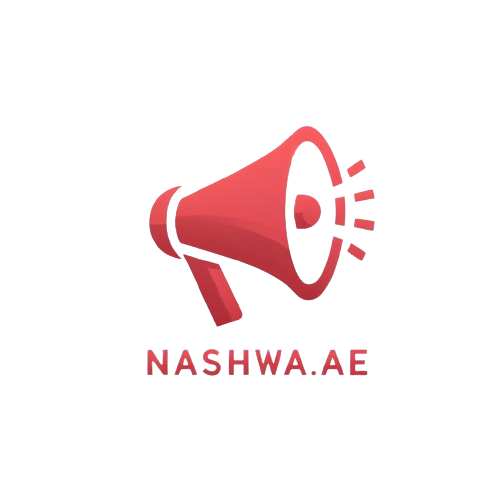Secure an Interest-Free Loan: Options in the UAE
In today’s financial landscape, securing an interest-free personal loan in the UAE can provide substantial relief, particularly for individuals seeking to manage their finances or fund essential expenses without incurring additional costs. This guide delves into the benefits of interest-free personal loans, outlines available options, and provides practical guidance on applying for them in the UAE.
Benefits of Interest-Free Personal Loans
- No Interest Costs: Interest-free loans eliminate the financial burden of additional interest payments, making them ideal for individuals looking to borrow without increasing their debt obligations.
- Predictable Payments: With no interest, monthly payments remain consistent, making budgeting and financial planning easier.
- Flexible Use: Personal loans offer flexibility, allowing borrowers to use funds for various purposes, including medical expenses, education, travel, or debt consolidation.
- No Prepayment Penalties: Many interest-free loans come without prepayment penalties, allowing borrowers to pay off their loans early and avoid any additional charges.
Beware of Scams: Interest-Free Loans in the UAE
Beware of Scams: Interest-Free Loans in the UAE
If you come across offers for interest-free loans in the UAE, proceed with caution. While some legitimate institutions might offer promotional no-interest loans under specific conditions, such offers are generally rare and typically short-term or related to specific purchases like electronics or furniture.
Interest-Free Loan Options in the UAE
- Islamic Banks: Many Islamic banks offer interest-free loans, adhering to Sharia-compliant financing structures such as Murabaha or Qard Hassan. These loans avoid interest by implementing fixed fees or service charges, providing a viable alternative for borrowers.
- Employer Loans: Some employers in the UAE offer interest-free loans as part of their employee benefits packages. These loans may be repaid through payroll deductions, providing a convenient and cost-effective solution.
- Charitable Organizations: Non-profit organizations and charitable foundations occasionally offer interest-free loans to individuals in need. These loans often focus on specific purposes, such as education or medical expenses.
- Credit Unions: Credit unions in the UAE may offer interest-free loans to members, providing an alternative source of financing. Membership requirements and loan terms may vary, so research individual credit unions for eligibility details.
How to Apply for an Interest-Free Personal Loan

- Research Lenders: Identify potential lenders, including Islamic banks, credit unions, employers, and charities. Compare their terms, eligibility criteria, and repayment structures.
- Check Eligibility: Ensure you meet the lender’s eligibility requirements, which may include income, employment status, and residency criteria.
- Prepare Documentation: Gather necessary documents, including proof of income, employment records, identification, and financial statements, to support your application.
- Apply: Complete the application process for your chosen lender, either online or in person, and submit the required documentation.
- Review Terms: Carefully review the loan terms, repayment structure, and any additional fees before accepting the loan to ensure it aligns with your financial goals.
You might like to read
Advance Salary Options in Dubai: Navigating DIB Policies
UAE Credit Cards with School Fee Offers
Advance Salary Options in Dubai: Navigating DIB Policies
Personal Loan Options in UAE Banks
If you are considering applying for a personal loan in the UAE, it’s crucial to compare offerings from different banks. Here is a detailed summary of the personal loan options available from various UAE banks, including their minimum salary requirements and starting interest rates. Please note that the rates mentioned are indicative and can vary based on your credit profile and other factors.
1. Emirates Islamic Bank
- For UAE Nationals: Minimum Salary: AED 10,000; Interest Rate: Starting at 2.59%
- For Expatriates: Minimum Salary: AED 10,000; Interest Rate: Starting at 2.85%
- More information: Emirates Islamic
2. Abu Dhabi Islamic Bank (ADIB)
- For Expatriates: Minimum Salary: AED 8,000; Interest Rate: Starting at 3.85%
- More information: ADIB Campaign
3. Al Wifaq Finance
- General Personal Finance: No minimum salary required; Interest Rate: Starting at 2.70%
- More information: Al Wifaq LinkedIn
4. Commercial Bank of Dubai (CBD)
- CBD Absher Personal Finance: No minimum salary required; Interest Rate: Starting at 2.45%
- More information: ICD Gov
5. National Bank of Fujairah (NBF)
- General Personal Finance: No minimum salary required; Interest Rate: Starting at 3.60%
- More information: Fujairah Observer
6. Emirates NBD
- Self Employed Personal Loan for Professionals: No minimum salary required; Interest Rate: Starting at AED 20,000 (Please confirm this unusual figure as it seems to be an error)
Additional Banks Offering Personal Loans:
- United Arab Bank (UAB): Minimum Salary: AED 7,500; Interest Rate: Not advertised.
- HSBC: Minimum Salary and Interest Rate: Not advertised.
- Standard Chartered: Minimum Salary and Interest Rate: Not advertised.
- Sharjah Islamic Bank: Minimum Salary and Interest Rate: Not advertised.
Important Considerations
- Interest Rate: This determines your loan’s total cost. Comparing rates from various banks is advisable.
- Fees: Look out for origination, processing, and late payment fees.
- Loan Amount and Repayment Term: These depend on your income and credit history. Longer terms mean lower monthly payments but higher total interest.
- Early Settlement Fees: Some banks charge fees for early loan repayment.
Common Questions Regarding Personal Loan Eligibility
- Can I get a loan on a 2500 AED salary? It is highly unlikely, as banks generally require a minimum salary of AED 5,000 or more due to concerns about repayment capability.
- Which bank gives loans easily? This varies based on individual credit profiles, but banks with lower minimum salary requirements may be more accessible.
- Minimum salary for ADCB personal loan? Typically around AED 5,000, but it is best to check directly with ADCB for the most accurate information.
- Is 40,000 AED a good salary? Yes, it’s considered a good salary in the UAE, likely to meet the eligibility criteria for most financial products.
- Is 30,000 AED a good salary? Yes, this is also a strong salary in the UAE context and should comfortably exceed the minimum requirements for personal loans.
Resources for UAE Residents
For more information on interest-free loans and financial health, consider the following resources:
- Central Bank of the UAE: The CBUAE website offers insights into banking regulations, loan guidelines, and financial planning resources.
- Dubai Chamber of Commerce: The Dubai Chamber website provides resources for financial planning, including guides and tools for managing loans.
- Consumer Financial Protection Bureau: The CFPB website provides information on various loan options, financial literacy programs, and budgeting resources.
Conclusion
Securing an interest-free personal loan in the UAE offers a practical solution for managing finances and funding essential expenses. By choosing the right lender, applying effectively, and utilizing available resources, you can obtain the loan that suits your needs. Remember to research lenders, review terms, and leverage resources to navigate the process smoothly.
- How to Become a Real Estate Agent in Dubai: A Comprehensive Guide
- How to Open a Company in Abu Dhabi: A Step-by-Step Guide
- How to Start a Daycare in Sharjah: A Comprehensive Guide
- How Airbnb Works and Making Money in Dubai Without Owning Property
- How to Get a Pest Control License Dubai Municipality Pest Control Exams






Leave a Reply